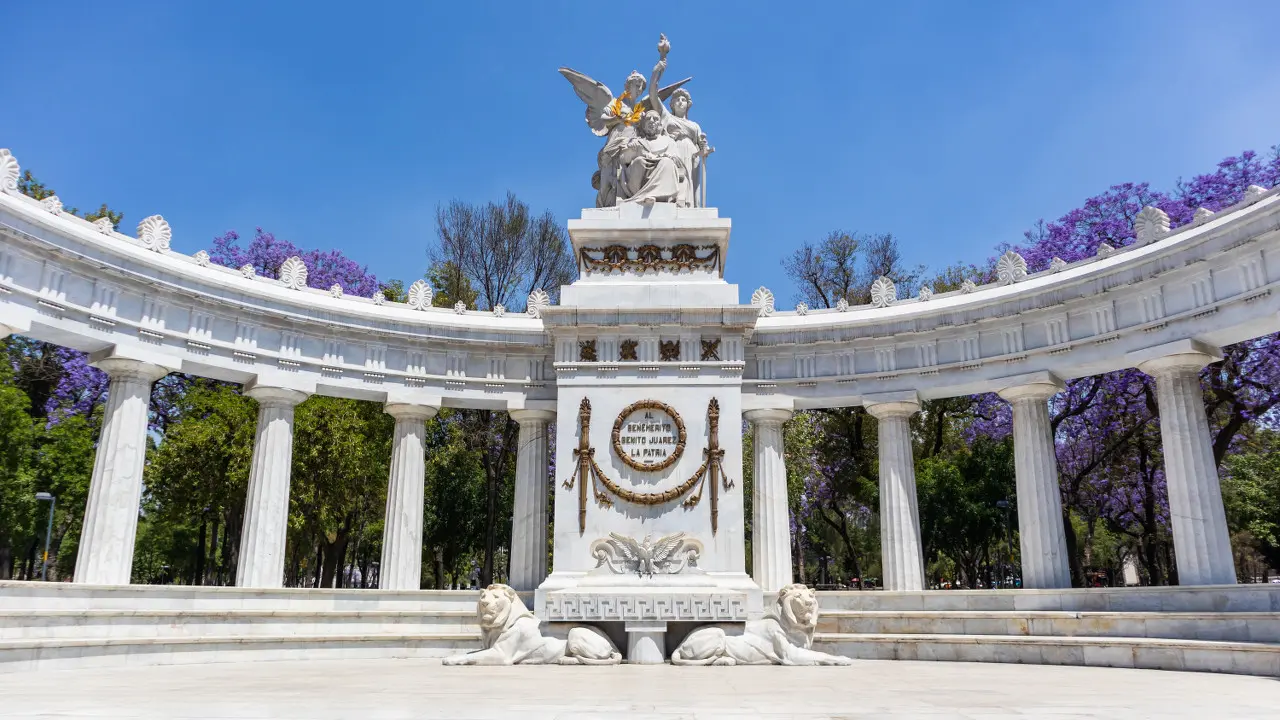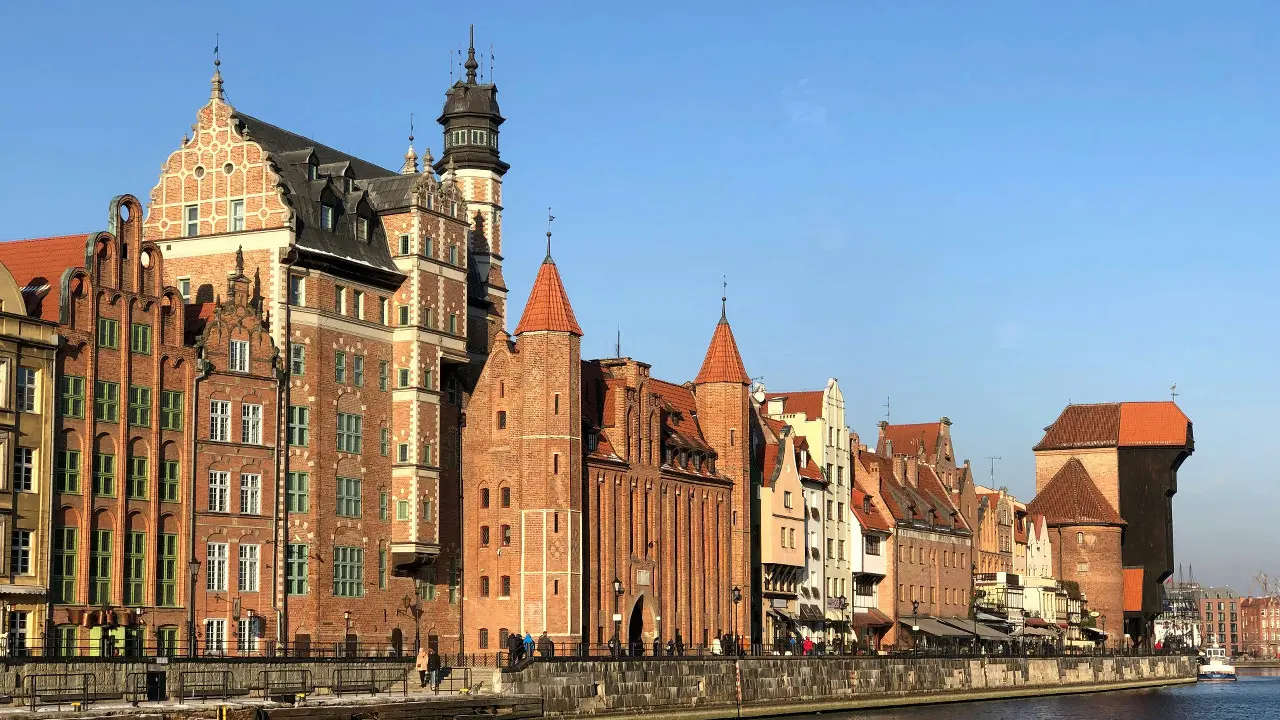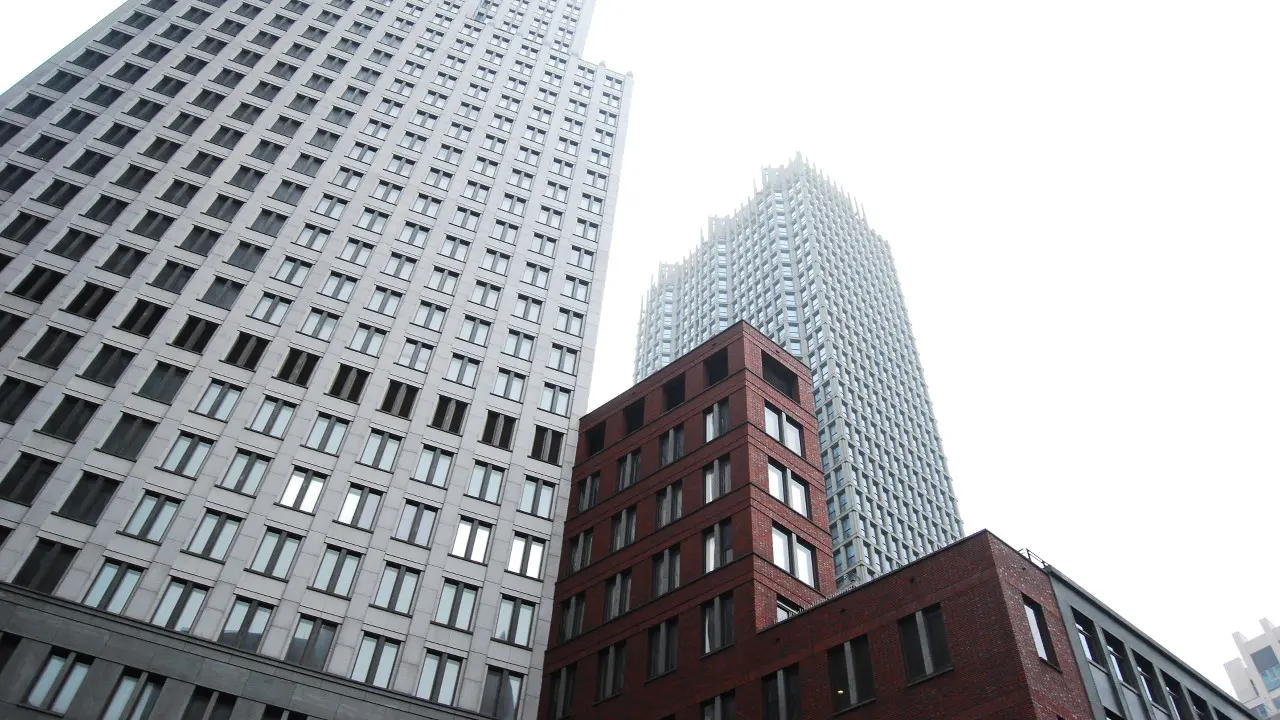ABOUT
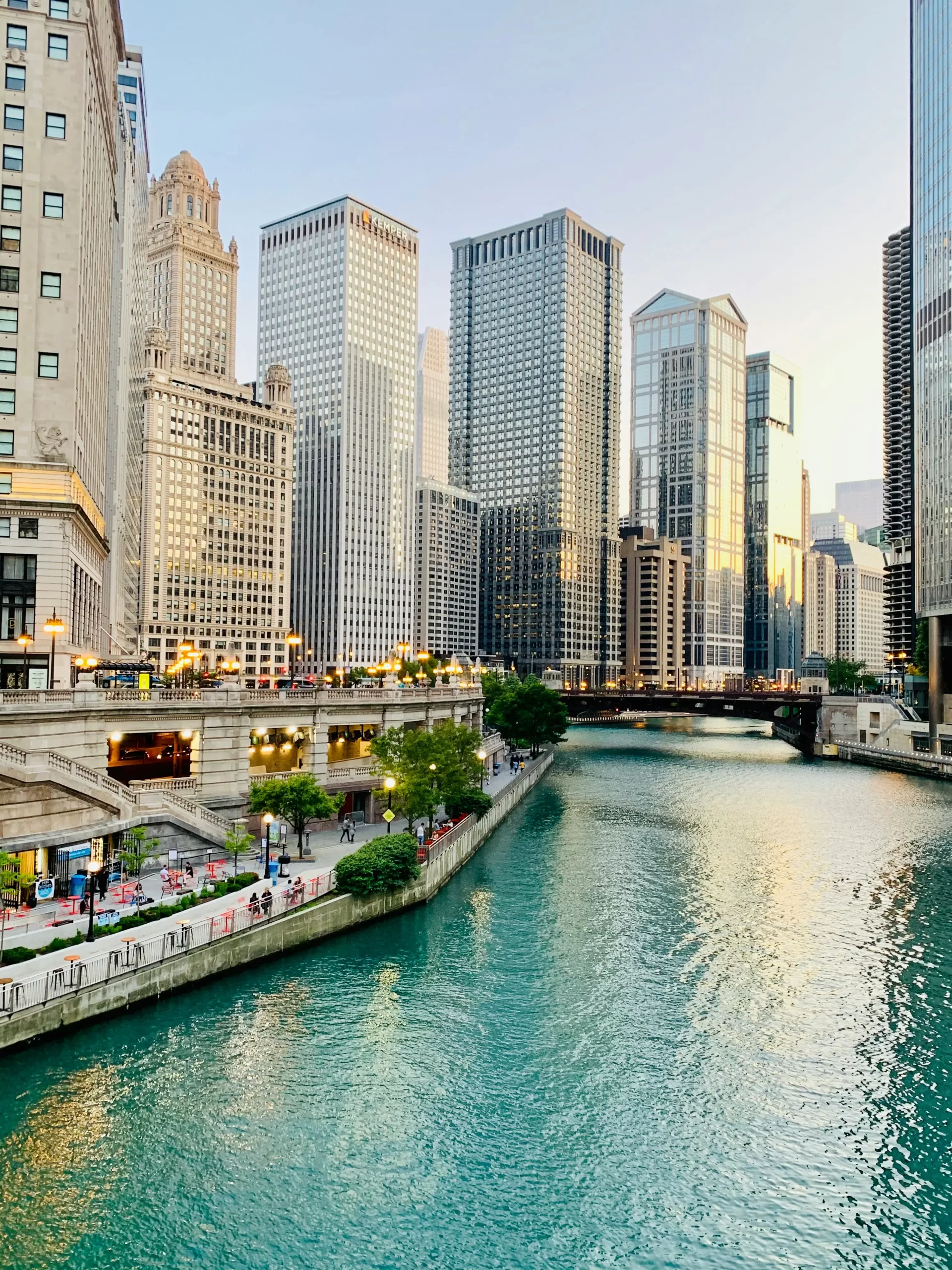
Olga: I think my itinerant lifestyle was written in the stars, so to speak. I was born in Ukraine to a Ukrainian/Russian mother and an Armenian/Russian father but immigrated to Cyprus very early on in life. I think that core memory influenced my need for travel later in life. So, all my formative years were spent in Cyprus. To this day, the island is my sanctuary. It is my semblance of a home, I speak the language fluently while the ebbs and flows of Mediterranean life are the most familiar to me. As school started, I added English to my native languages. In high school my language palette had further additions with Italian and French. By the time I left school, I spoke 5 languages.
At the age of 18, I left my island and ventured across the Mediterranean Sea to the U.K to peruse higher education. What was meant to be a 3 year course turned into a 15 year sojourn, as two weeks into starting university I met my husband. England became our travel hub, allowing easy access to Europe. My professional path led me through the bustling streets of London and the vibrant cityscape of Leeds, where I honed my skills as a Project Manager. Specializing in large-scale government projects, I found purpose in contributing to endeavors spanning the criminal justice sector to pan-European research initiatives. As life unfolded, a new opportunity beckoned from across the Atlantic, drawing us to the United States. Embracing change once again, I embraced the spirit of exploration and embarked on a new chapter in my journey. Fun fact: before moving to the US, I never actually visited. My first visit to the US was when I moved.
Moving to Chicago
When and why did you move to Chicago?
We moved to Chicago January 1st 2023. As my latest project was finishing, my husband got an opportunity to move to the states. We decided to take the plunge!
What did you bring with you?
We opted to ship some of our furniture, collectibles, and personal items in a container, while carrying essential items like clothes and documents with us on the plane. It’s worth noting that shipping belongings can be a lengthy process; in our case, it took a full four months for our items to arrive at our new destination.
How did you get set up? (phone plan, bank ..)
Moving continents is a tricky business. First of all, you are in this catch-22: you need a permanent address to open an American bank account but you need an American bank account to get a permanent address. The first bank we approached (a larger, more globally recognised bank) turned us down. Which blew my mind because if anyone would understand the pitfalls of social mobility, it would be a bank with global reach! But it was a lowly small local bank that went above and beyond to help us. We used a work address as a placeholder which they were happy to do. Another important (and one of the main things you need to do as soon as you arrive in the US) is get a social security number. Bureaucracy takes time! Even something as simple as getting a phone plan, can be perilous. Unlike the U.K., where you get a contract and you can get coverage across Europe, American plans encourage you to get a lot of add-ons. Really think about what you will need. We went for Mint Mobile, no contract nation-wide coverage with easy online activation. When we travel abroad we use Airalo for data.
Was it difficult for you to get medical insurance in the US?
Navigating the intricacies of the healthcare system in the United States can certainly be daunting, especially for newcomers like us. We got medical coverage through work. Most people who come here for work from abroad already have employment sorted so medical insurance is usually part of that package. One of the most challenging aspects is understanding the jargon that comes with health insurance, such as HSA, PPO, co-pay, and deductibles.
Then, when time comes for you to seek medical care, it’s important to realize that doctors don’t typically have fixed prices. Instead, they bill your insurance, and then the insurance adjusts the prices according to your plan’s coverage. This can lead to uncertainty and confusion about the final costs.
One key term to familiarize yourself with is HSA, or Health Savings Account. Contributions to your HSA can provide significant tax benefits, as they reduce your taxable income, allow your money to grow tax-free, and enable tax-free withdrawals for qualified medical expenses. Additionally, HSA funds can be invested similarly to other investment accounts, offering potential for growth over time.
In essence, the US healthcare system operates within a complex framework of insurance plans, coverage options, and financial considerations. By understanding the terminology and nuances involved, you can better navigate these waters!
How did you find an apartment?
All done online, by ourselves. We used websites like Apartments.com to make a list of potential rental properties and then go and see them. Rent is definitely on the higher end in Chicago and its suburbs.
What surprised you about life there?
Life in Chicago brought a series of unexpected surprises our way. First and foremost, the weather proved to be a shocker. It’s hard to comprehend the bone-chilling cold of -30 Celsius until you’ve experienced it firsthand. Tornadoes added another element of surprise to our journey. Additionally, adjusting to the portion sizes and high salt levels in American food was a challenge. If you are a fan of chocolate then you will suffer, completely different to European chocolate. Less cocoa and more corn syrup. Yet, the most eye-opening aspect of our new life was the sheer vastness of the country. While it may seem large on the map, the scale of America truly hits home when you’re driving through its expansive landscapes.
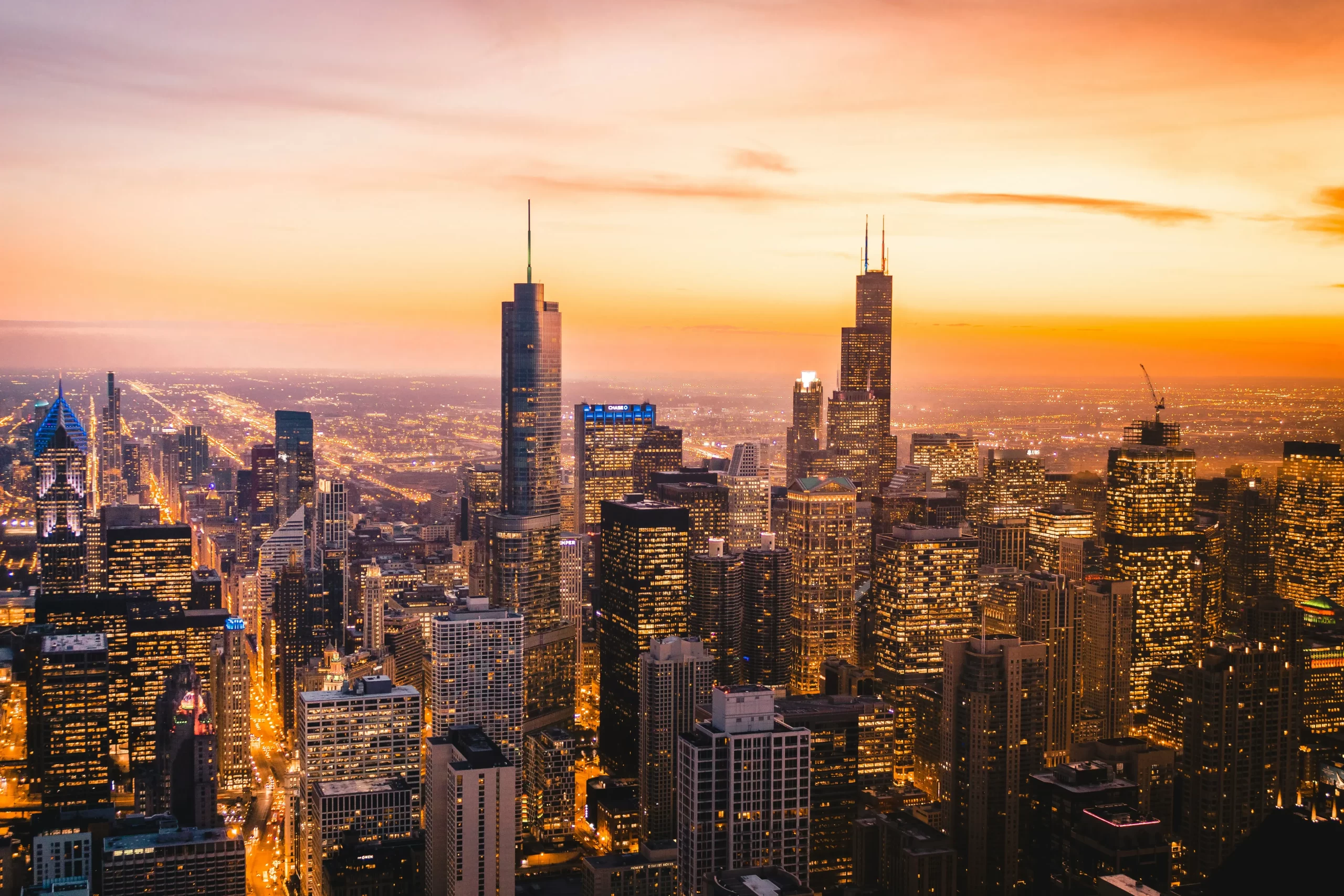
Living in Chicago
What specifically is Chicago famous for?
First thing first, let’s address the elephant in the room – crime in Chicago. Sure, Chicago has its challenges, but it’s not the crime-ridden war zone that some make it out to be. Like any big city, it has its pockets of crime but it does feel like sometimes the city is portrayed to be this grimy criminal underbelly. Chicago is actually an economical powerhouse! The “Second City” boasts a diverse economy driven by industries such as finance, manufacturing, technology, and healthcare. However, it must be the deep-dish pizza that Chicago is known for. I have to admit, it is starting to grow on me. Chicago was also the first city to have a “skyscraper”, a ten story building that revolutionised urban development. The city has its own architectural style which makes it one of the most beautiful cities. Unlike New York, every building has some space around it making it a work of art in its own right. So we have these beautiful tall buildings bordering golden sand on the shores of Lake Michigan, something very few cities can boast.
Can you tell us something else about Chicago that we might not know?
You may not believe it because of the winter weather but summers in Chicago are phenomenal. Chicagoans truly embrace outdoor living, especially from late May to October. The whole city comes alive as people flock to outdoor spaces, from restaurants with dedicated al-fresco dining areas to rooftop bars offering stunning city views. When the weather heats up, you’ll find locals congregating along the shores of Lake Michigan, seeking relief from the heat.
But Chicagoans’ love for their city goes beyond enjoying the great outdoors. They’re fiercely protective of their hometown, distinguishing between “Chicago” and “Chicagoland,” which includes some suburbs. If you claim to be from Chicago when you’re actually from a suburb, be prepared for a friendly but firm correction!
And let’s clear up a common misconception: Chicago’s nickname, “The Windy City,” has nothing to do with the weather. It actually originated from the city’s politicians, who were known for their verbose and often bombastic speeches. In other words, they were “blowhards”. Hence the nickname.
What books / movies / websites should people look at to learn more about Chicago?
Anthony Bourdain travelled to Chicago and I think he did the city justice. A more current culinary explorer was Phil Rosenthal on Netflix. Also did it justice. I think food can tell you a lot about a city. In today’s digital age, social media can also be a valuable tool for discovering the best of Chicago. By following locals who proudly share their city’s highlights, flaws and all, you’ll get an authentic glimpse into what makes it tick. Nelson Algren is probably my favourite author from Chicago. “The man with the golden arm” and “Chicago: city on the make” provide unflinching honesty about the city he grew up in. Another great novel about Chicago is “Native Son” by Richard Wright is another powerful novel that delves into the complexities of life in Chicago.
What do you know about music from Chicago?
Chicago’s music scene is as diverse as they come. Playing host to several extremely popular music festivals like Lollapalooza, Blues and Jazz Festival as well as the more recent Sueños Music Festival. Deeply rooted in Chicago’s musical pedigree is arguably Blues and Jazz. Legends like Muddy Waters, Howlin’ Wolf, and Willie Dixon bring Chicago some serious blues cred. Then there’s jazz, and Chicago’s got a rich history in that department too. Nat King Cole, the king of smooth crooning, got his start here. And don’t forget about Louis Armstrong – he may have been born in New Orleans, but he made his mark in Chicago’s jazz clubs. Chaka Khan, the Queen of Funk, was born here. Another powerful voice born in Chicago was Jennifer Hudson. Hip Hop, of course, deserves a special mention with the likes of Kanye West and Chance the Rapper leaving their mark on the city’s musical legacy and propelling Chicago to the international stage.
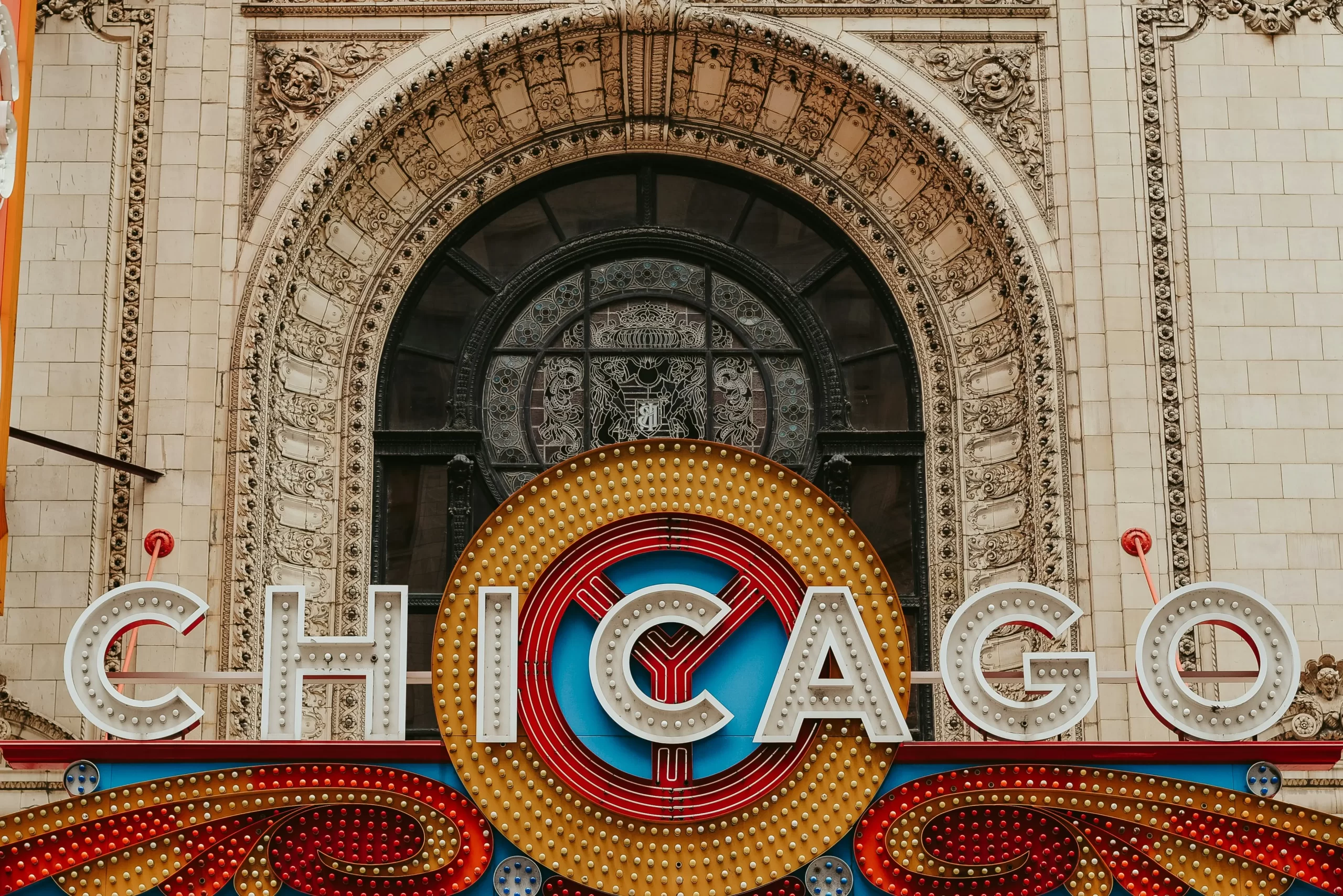
Final Thoughts
Are there any experiences there that surprised you?
One very surprising aspect of Chicago is that it is a neighbourhood city. There is Greektown, Chinatown, Ukrainian Village, Pilsen with its Mexican heritage to name a few. This isn’t something that you find in Europe. Chinatown would consist of a street or two. There may be a couple of Greek restaurants in North London but these are vast neighbourhoods each with distinct characters of the diasporas. Another surprise? The American flags outside people’s houses. Americans take a lot of pride in their country and their flag. In Europe we only bring the flag out when football is on. Speaking of football, if you think England is football crazy, think again. The level of popularity that American Football enjoys is unparalleled.
Was it easy making friends and meeting people; did you mainly socialize with other expats?
We’ve formed friendships with a mix of locals, expats, and immigrants, but I’d say our circle leans towards immigrants and expats. Still, many generous locals have welcomed us with open arms. Having experienced both immigration and expatriation, I can definitely see the distinction. When we moved to Cyprus, we fully embraced our new identity, soaking up its traditions and idiosyncrasies. It was the same for my husband’s family when they immigrated to the UK.
Our move to the US is a long-term commitment, but it’s different. We’re here for work and adventure, not to put down permanent roots. Cyprus will always be home, and when we leave the US, we won’t carry a piece of America with us the same way. Even after 20 years, I would not feel American. I will do my best to help better the country I live in but I will not take on its identity.
I met this lady recently who grew up on the West Coast but now lives on the East Coast. She refers to herself as a “migrant” because America is just so vast. It’s like two different countries on each coast! She’s not an immigrant, having been born and bred in the US, and she can’t be an expat since she’s still in the same country. So “migrant” kind of fits her best because she feels like she needs a “group” or “label”. I think we naturally gravitate towards each other because we understand that feeling of not quite fitting into a specific group. There is a term called “psychological homelessness” which many immigrants and expats feel. It is almost a uniting quality, in a way.
What are some disadvantages to living in Chicago?
I will preface by saying that the distribution of opportunities is not equal across the board. These disparities render each individual experience variable and subject to unique circumstances. My experiences, good or bad, may not reflect the experience of others. So, I can only make observations about general disadvantages of everyday life. Illinois maintains relatively high taxation rates compared to other states, including sales taxes, income taxes, and property taxes. This contributes to the overall cost of living. Traffic and continuing issues with public transport in Chicago. Despite calls for remediation from the politicians, it feels like they tend to turn a blind eye. On a more personal note, and I think this is not just Chicago but America in general, is the significant cultural differences with Europe. Contrasts in work ethics and approaches to professional and personal endeavours, that go against prevailing norms, can cause certain levels of disharmony. I hope these observations underscore the nuanced complexities inherent in adapting to the cultural landscape of America.
What should people consider before deciding to move to Chicago?
For those considering a journey from Europe to the US: get ready for a whirlwind of cultural quirks and unexpected surprises! Picture this: you stroll into a local bank, only to realize that checks are still a thing here. Indeed, we had to enlist the help of a friendly bank clerk to teach us how to wield this relic of paper transactions.
But that’s just the beginning. Want to feel 18 again, starting your credit history from scratch at the age of 30? Well, welcome to the States! Forget about your pristine credit history back home – here, you’re back to square one, building up your financial credibility one step at a time.
Now let’s talk about driving. Your UK driver’s license buys you a six-month grace period, but trust me, you’ll want to swap it for a state license sooner rather than later. Navigating those American roads is a whole different ball game and having an American license will bring down your insurance. You are starting that from scratch as well!
Now, onto the unexpected curveballs. Time zones. Yep, the dreaded time difference can really throw you for a loop. Suddenly finding yourself oceans away from friends and family can tug at the heartstrings, making those late-night calls or early morning catch-ups feel like a distant memory. But once you get through the first few difficult months, America really does have some spectacular moments in store for you.
WHAT ARE YOUR PLANS FOR THE FUTURE?
Over the past year, it was necessary for me to work on a more freelance basis. This afforded me the opportunity to lay down roots and build a life here. Now that everything seems to be falling into place, I’m eager to transition into a more permanent role and dip my toe into the corporate world of America. I’m particularly excited about the prospect of delving deeper into everything this country has to offer.
We are avid lovers of the great outdoors, and we’re thrilled about the abundance of natural wonders waiting to be explored in America’s national parks. Plus now we have our rescue pup, Wrinkle, who is a perfect hike companion. From desert landscapes to lush rainforests, there’s a climate and terrain to satisfy every craving.
But it’s not just nature that beckons us – we’re also eager to immerse ourselves in the rich tapestry of American history and culture. Cities like Detroit and Washington DC, with their pivotal roles in shaping the nation. The quaint charms of rural Nebraska’s small towns and the vast expanses of Texas.
With so much to see and do, the journey ahead promises to be an exciting one. Stay tuned for more adventures!
Thank you Olga for your detailed account of your life story so far! It was incredible to read your insights into moving to Chicago!
Her Instagram: Here!


